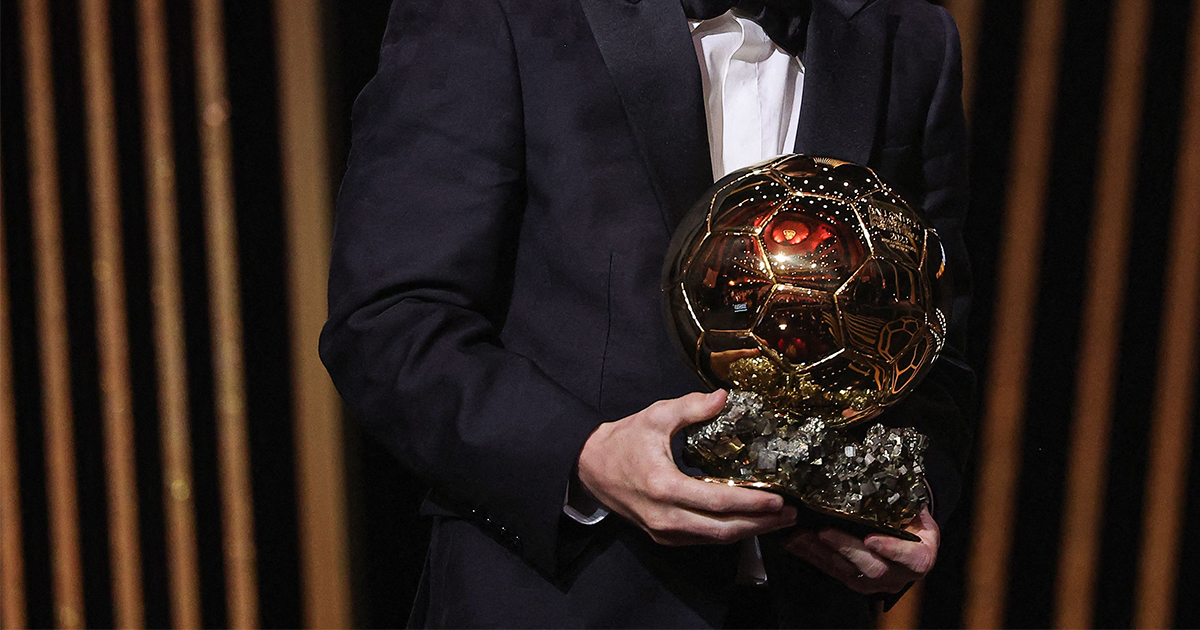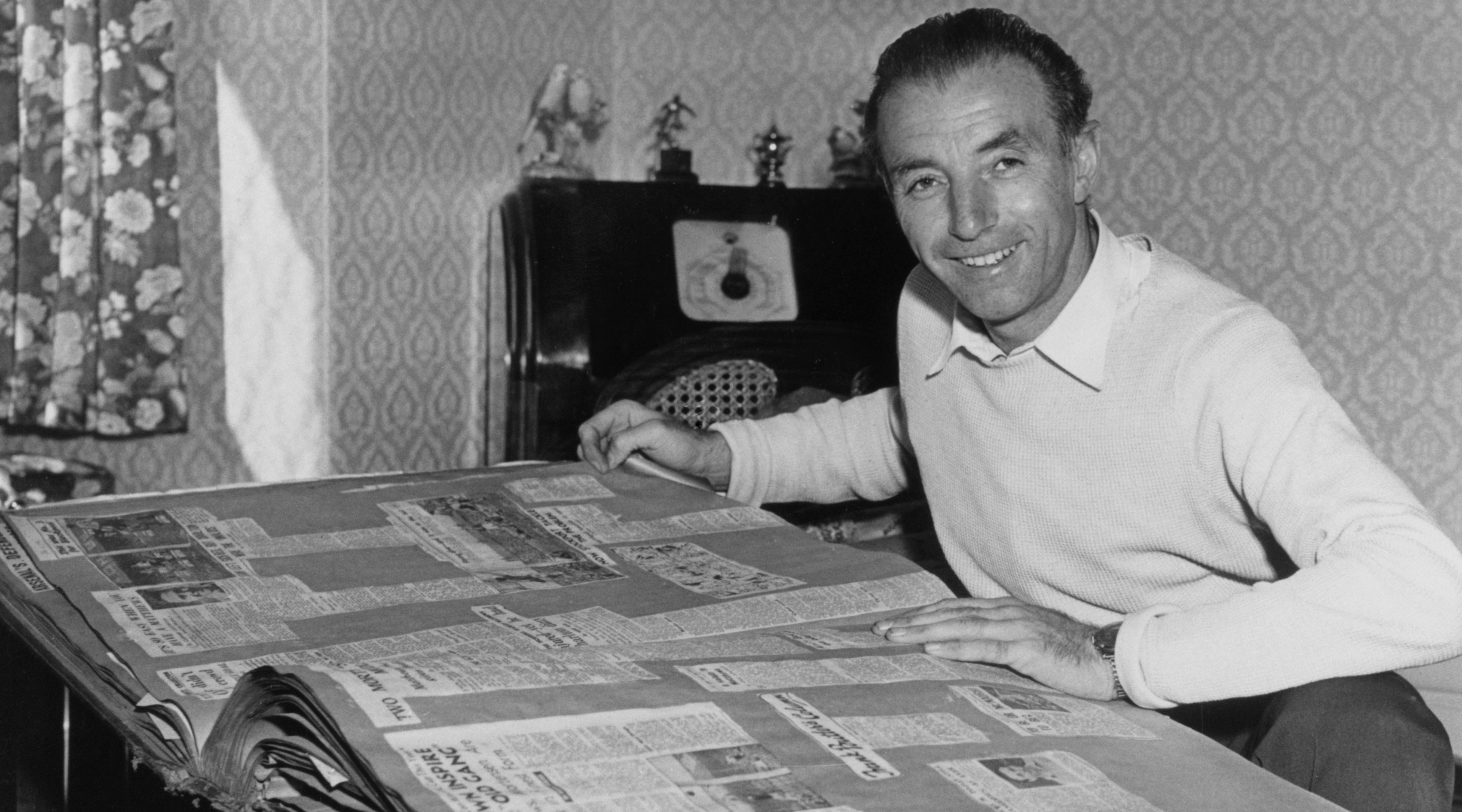
In inaugural Ballon d'Or winner Sir Stanley Matthews’ pioneering pomp, the Wizard of the Dribble’s speed wowed as much as his supernatural footwork.
During the 1930s and 1940s, as many as 10,000 extra fans would squeeze through turnstiles whenever the legendary winger was in town, desperate to see the sinuous genius shimmy past defenders. The secret to this incredible lightness of being?
“Stan warmed up with weighted boots on, like a diver’s boots,” said former Spurs and Wales wideman Cliff Jones. Matthews’ unusual footwear helped to build strength in his lower legs, providing a sensation of weightlessness once removed for kick-off.

It was one of many tricks employed by a man who played more than 800 senior matches for Stoke, Blackpool and England in a career spanning 33 years and a world war. The greatest of those was the 1953 FA Cup Final.
Such was Matthews’ virtuosity in front of a 27-year-old Queen Elizabeth II at Wembley, he inspired Blackpool back from 3-1 down with 22 minutes left to beat Bolton 4-3. Stan Mortensen scored a hat-trick, but it came to be known as ‘The Matthews Final’. Three years later, he’d receive individual recognition of a different kind.
Now aged 41, the England international had powered the Seasiders to second place in the 1955/56 First Division behind Manchester United’s Busby Babes – the club’s highest-ever finish, even more impressive for a side who’d come 19th just a season earlier. Matthews laid on many of top scorer Jackie Mudie’s 22 league goals, before steering England on course for victory in the 1956/57 Home Championship.
VIDEO: Why Jude Bellingham Can Win England The Euros
Dazzling performances against Ireland and Wales had earned the veteran fresh acclaim across Europe. His timing couldn’t have been better. Ex-France defender Gabriel Hanot, by then editor of respected football newspaper L’Equipe, was putting the finishing touches to his latest landmark idea. The inventor of the European Cup wanted a prize to honour the continent’s best individual, to complement his trophy for the greatest team.
Hanot and his fellow French journalists each named their top three European players of 1956, with the recipient of the most votes to be handed a golden ball – or ‘Ballon d’Or’ to our Gallic neighbours.
The inaugural award garnered such little fanfare that when Matthews accepted the gong – a far smaller trophy than today’s 7kg gold-encrusted orb – from Hanot, the setting wasn’t a glitzy Paris ceremony, but Blackpool Town Hall. Also in attendance were Matthews’ first wife Betty, plus the coastal resort’s mayor, who presented a china plate to commemorate the day.
In truth, Hanot would rather have been somewhere else, pictured instead alongside one of the also-rans – superstars such as Lev Yashin (who was fifth), Ferenc Puskas (fourth), Raymond Kopa (third) and, his personal pick, runner-up Alfredo Di Stefano.
“In the right-winger Stanley Matthews, there is something of Charles Chaplin,” Hanot later grumbled in magazine France Football, who organise the prize to this day. “In Alfredo Di Stefano, we celebrate a great knight, who brings together courage and invincibility. Stanley Matthews is light humour. Di Stefano is an epic.”
Perhaps Hanot felt Matthews’ victory owed too much to his longevity, not a sublime 12 months for club and country. The Blackpool conjurer hadn’t even nailed his own nation’s top-player gong – Manchester City goalkeeper Bert Trautmann scooped the Football Writers’ Association award in 1955/56. Di Stefano, by comparison, had plundered 29 goals in all competitions as Real Madrid bagged the first-ever European Cup against Reims in Paris. Still, a vote’s a vote.
Hanot may not have got who he wanted, but his prize would grow into an important event in the football calendar. The Frenchman continued to deliver the award to each year’s winner until his death in 1968. As for china plates, you’d have to ask Lionel Messi if those are still a thing.
More Ballon d'Or stories
FFT editor James Andrew has argued why Erling Haaland should have won the 2023 award, while deputy editor Matthew Ketchell has laid out why Messi is more deserving.
Pep Guardiola has weighed in on the debate – meanwhile, these are the biggest robberies in Ballon d'Or history.
This is how the Ballon d'Or 2023 ceremony unfolded as it happened.







